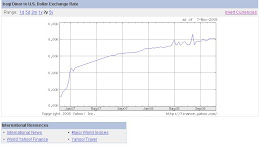US President-elect is determined to crush Al-Qaeda in Afghanistan, shut down Guantanamo Bay camp.
President-elect Barack Obama vowed to pull troops out of Iraq, crush Al-Qaeda in Afghanistan and shut down the Guantanamo Bay camp as part of a dramatic foreign policy break with George W. Bush.
Repairing the stricken US economy will be priority number one, even at the cost of still-bigger budget deficits, Obama said in his first major post-election interview broadcast on CBS program "60 Minutes" late Sunday.
Following his election triumph of November 4, Obama said at least one Republican would be in his cabinet and confirmed that he had met former Democratic primary rival Hillary Clinton last week.
But the president-elect refused to comment on speculation linking the former first lady to the job of secretary of state.
The man who will be the first black US president is accelerating his transition to inauguration day, resigning his Senate seat Sunday and appointing three more top aides to serve in his White House once he succeeds Bush.
As soon as that happens on January 20, Obama said, "I will call in the Joint Chiefs of Staff, my national security apparatus, and we will start executing a plan that draws down our troops" from Iraq.
"Particularly in light of the problems that we're having in Afghanistan, which has continued to worsen. We've got to shore up those efforts," Obama said in the interview, which was taped Friday.
On the campaign trail, Obama vowed to pull one or two combat brigades out of Iraq every month until after 16 months, only a residual security force of unspecified size remains. Some of those brigades would head to Afghanistan.
He told CBS that "it is a top priority for us to stamp out Al-Qaeda once and for all" and that killing or capturing the group's mastermind Osama bin Laden was "critical" to US security.
Obama pledged to tackle controversial offshoots of Bush's "war on terror" -- the US military's internment camp at Guantanamo Bay, Cuba, and harsh interrogations of captured terror suspects.
"I have said repeatedly that I intend to close Guantanamo, and I will follow through on that," the president-elect said.
"I have said repeatedly that America doesn't torture. And I'm going to make sure that we don't torture. Those are part and parcel of an effort to regain America's moral stature in the world," Obama added.
But he did not elaborate on where the Guantanamo prisoners would be taken, whether they would be transferred to civilian custody in the United States itself, put on trial, or released.
A command to redeploy troops out of Iraq or shut down Guantanamo could be done in short order under Obama's presidential prerogatives, and he is expected to reverse a slew of other contentious "executive orders" signed by Bush.
Obama said that in Congress, his first legislative priority was getting another stimulus package passed to prop up the enfeebled economy, if Democrats in the outgoing legislature fail to overcome Republican opposition.
As already shown in excerpts released by CBS, Obama said it would be a "disaster" for the government to stand by and let the cash-strapped General Motors and the auto industry in general collapse.
In line with the outcome of a summit Saturday of the world's 20 biggest economies, the president-elect said forging new regulation of the financial markets was essential to restoring the trust of consumers.
Obama appeared unconcerned about the red ink blotting the US government's finances, arguing economists from left and right agreed that "we have to do whatever it takes to get this economy moving again."
"And that we shouldn't worry about the deficit next year or even the year after. That short term, the most important thing is that we avoid a deepening recession," he said.
Joined by his wife Michelle in the interview, Obama said their two young daughters would get their promised dog, and expressed hope that Michelle's mother Marian Robinson would move in with them at their new residence.
Obama, a gifted writer who has authored two best-selling memoirs, turned wistful as he anticipated life in the White House fishbowl.
"That's something that I don't think I'll ever get used to. I mean, the loss of anonymity," he said. "And this is not a complaint, this is part of what you sign up for."
( Middle East Online )

